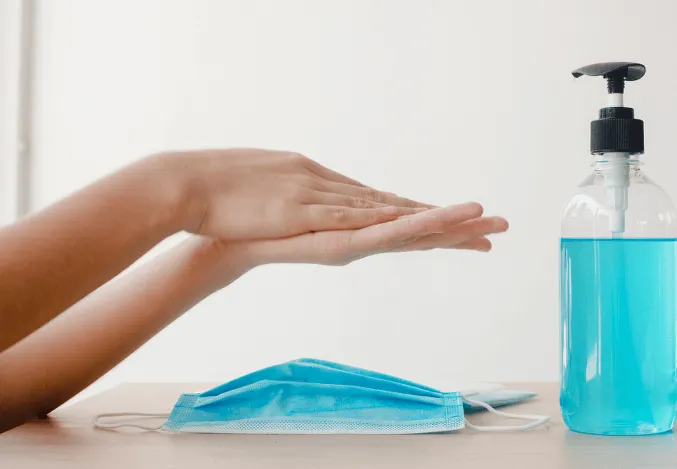Hygiene (PPE)
Good hygiene and personal protective equipment (PPE) help keep you safe from germs, infections, and everyday health risks. Whether you are at home, at work, or out, staying protected matters more than ever. From hand sanitisers and facemasks to gloves and disinfectants, we offer trusted products to help keep you and those around you healthy. Explore our range below for essential hygiene and PPE supplies, all available for fast, discreet UK delivery.

Why is good hygiene important?
Poor hygiene can expose you and your loved ones to harmful bacteria, viruses, and fungi. Everyday habits like neglecting handwashing, failing to clean wounds properly, or wearing unwashed clothing can allow germs to spread, leading to infections such as:
- Food poisoning – from bacteria like salmonella or E. coli
- Respiratory infections – including cold, flu, or pneumonia
- Skin infections – like fungal infections (e.g., athlete’s foot)
- Gastrointestinal illnesses – such as gastroenteritis or hepatitis A
Maintaining high standards of personal and household hygiene can drastically reduce your risk of these illnesses and keep your family healthy.
How can you maintain good hygiene?
Good hygiene starts with simple everyday habits:
- Wash your hands regularly with soap and water or use hand sanitiser.
- Shower daily and change into clean clothes.
- Brush your teeth twice a day and use mouthwash if needed.
- Cover your mouth and nose when coughing or sneezing.
- Keep your living spaces clean, especially kitchens and bathrooms.
- Wear a facemask in crowded or high-risk settings if advised.
How do hygiene products and PPE help?
High-quality hygiene products and personal protective equipment (PPE) act as your first line of defense against germs:
- Face masks – Reduce the spread of airborne droplets, helping protect you and others from respiratory infections.
- Hand sanitiser – Kills germs quickly when you don’t have access to soap and water.
- Gloves – Provide a protective barrier when handling potentially contaminated surfaces or caring for someone who is ill.
- Disinfectant wipes & sprays – Keep high-touch surfaces clean to prevent germ transmission in your home or workplace.
Using trusted hygiene products alongside good personal habits helps you stay healthier, reduces your chances of passing germs to others, and supports a safer community.
Can I buy hygiene products online?
Yes — you can buy a wide range of hygiene products and PPE online quickly, discreetly, and conveniently from Click Pharmacy.
How to order
Order your Hygiene (PPE) medication in a few clicks. Ordering from us is easy, fast and discreet.
Free Online Assessment
Answer a few simple questions about your health.
Choose Your Medication
Our prescribers will review and guide you to the right treatment.
Fast Delivery
Once approved, your treatment is dispatched discreet packaging by next day delivery.